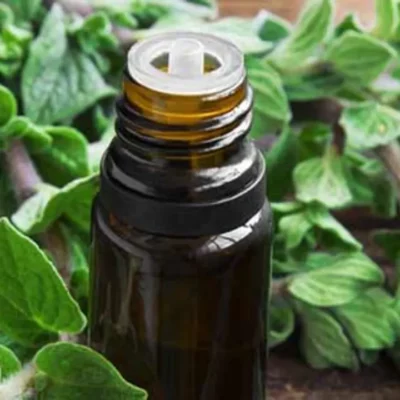
Wellhealthorganic.com:diet-for-excellent-skin-care-oil-is-an-essential-ingredient
A well-balanced diet can have a significant impact on the health and appearance of your skin. In addition to consuming plenty of water, fresh fruits, and vegetables, incorporating healthy oils into your diet can also be beneficial for your skin.
Omega-3 and omega-6 fatty acids are essential fats that can help to maintain healthy skin. These healthy oils can be found in foods such as fish, nuts, and seeds, as well as in supplements like fish oil.
Other healthy oils that are beneficial for skin health include:
- Olive oil: Rich in antioxidants, this oil can help to protect the skin from damage caused by free radicals.
- Coconut oil: This oil has antimicrobial properties and can help to soothe and hydrate the skin.
- Avocado oil: Rich in vitamins A and E, this oil can help to nourish and protect the skin.
Benefits
It’s important to remember that while consuming healthy oils can be beneficial for your skin, it’s also important to maintain a well-rounded diet and to practice good skincare habits such as cleansing and moisturizing regularly.
Incorporating healthy oils into your diet can provide several benefits for your skin, including:
Moisturization: Healthy oils such as olive oil, coconut oil, and avocado oil can help to hydrate and moisturize the skin from within. They can also help to improve the skin’s barrier function, preventing moisture loss.
Anti-aging effects: The antioxidants found in healthy oils can help to protect the skin from damage caused by free radicals, which can contribute to premature aging. Omega-3 fatty acids found in fish oil can also help to reduce inflammation in the skin, which can be a contributing factor to the aging process.
Improved skin texture: Consuming healthy oils can help to improve the texture of the skin, making it smoother and more supple.
Acne prevention: Some healthy oils, such as coconut oil, have antimicrobial properties that can help to prevent the growth of acne-causing bacteria on the skin. Omega-3 fatty acids can also help to reduce inflammation in the skin, which can be a contributing factor to acne.
Skin nourishment: Healthy oils are rich in vitamins and nutrients that can help to nourish the skin from within. For example, avocado oil is rich in vitamins A and E, which can help to protect the skin from damage and promote healthy skin cell growth.
Also Read: WELLHEALTHORGANIC.COM:SOME-AMAZING-HEALTH-BENEFITS-OF-DRINKING-WATER-FROM-AN-EARTHEN-POT
Side Effects
While incorporating healthy oils into your diet can have many benefits for your skin, consuming them in excessive amounts or using them improperly can have some side effects. Here are a few potential side effects to be aware of:
Weight gain: Consuming too much oil, which is high in calories, can lead to weight gain if you’re not careful to balance your calorie intake with your energy expenditure.
Digestive issues: Eating too much oil can also lead to digestive issues such as diarrhea or stomach upset, especially if you have a sensitive stomach.
Acne breakouts: While some oils can be helpful in preventing acne, using certain oils on the skin can actually contribute to acne breakouts in some people, especially if they have oily or acne-prone skin.
Allergic reactions: Some people may be allergic to certain oils, which can cause skin irritation, rashes, or other allergic reactions.
Interference with medication: Some healthy oils, such as fish oil, can interfere with certain medications, so it’s important to check with your doctor before taking supplements if you’re on medication.
It’s always a good idea to consult with a healthcare professional before making significant changes to your diet or adding supplements to your routine, to ensure that you’re doing what’s best for your individual needs and health.
Also Read: WELLHEALTHORGANIC.COM:HOW-DETOX-WATER-WORKS-IN-REDUCING-WEIGHT
Conclusion
Incorporating healthy oils into your diet can provide several benefits for your skin, such as moisturization, anti-aging effects, improved skin texture, acne prevention, and skin nourishment. However, consuming too much oil can lead to weight gain and digestive issues, and applying oil topically should be done in moderation to avoid clogging pores or causing irritation. It’s important to choose the right oil for your skin type and to consult with a healthcare professional before making significant changes to your diet or adding supplements to your routine. With moderation and careful selection, healthy oils can be a valuable addition to your diet and skincare routine.
FAQ
Here are some frequently asked questions about incorporating healthy oils into your diet for excellent skin care:
Q: What types of healthy oils are best for skin care?
A: There are several healthy oils that can benefit skin care, including olive oil, coconut oil, avocado oil, and fish oil. These oils are rich in antioxidants, vitamins, and healthy fats that can help to nourish and protect the skin.
Q: Can consuming too much oil be harmful to my skin or overall health?
A: Consuming excessive amounts of oil, which are high in calories, can lead to weight gain if you’re not careful to balance your calorie intake with your energy expenditure. It can also lead to digestive issues such as diarrhea or stomach upset, especially if you have a sensitive stomach. Therefore, moderation is key.
Q: Can applying the oil topically also benefit my skin?
A: Yes, some oils can be applied topically to help hydrate, nourish, and protect the skin. However, it’s important to choose the right oil for your skin type and to use it in moderation to avoid clogging pores or causing irritation.
Q: Can healthy oils help prevent or treat acne?
A: Yes, some healthy oils have antimicrobial properties that can help to prevent the growth of acne-causing bacteria on the skin. However, it’s important to choose the right oil for your skin type, as some oils can actually contribute to acne breakouts in some people.
Q: Should I take supplements such as fish oil for skin care?
A: It’s generally best to get nutrients from whole foods rather than supplements whenever possible. However, if you’re not able to consume enough healthy oils in your diet, supplements such as fish oil can be a good option. Just be sure to talk to your doctor first, especially if you’re on medication, to ensure that it’s safe for you to take.










